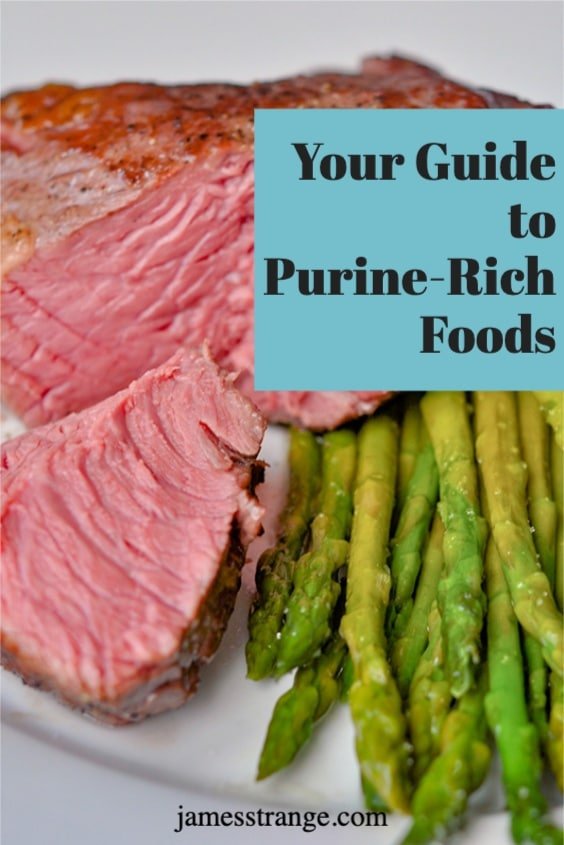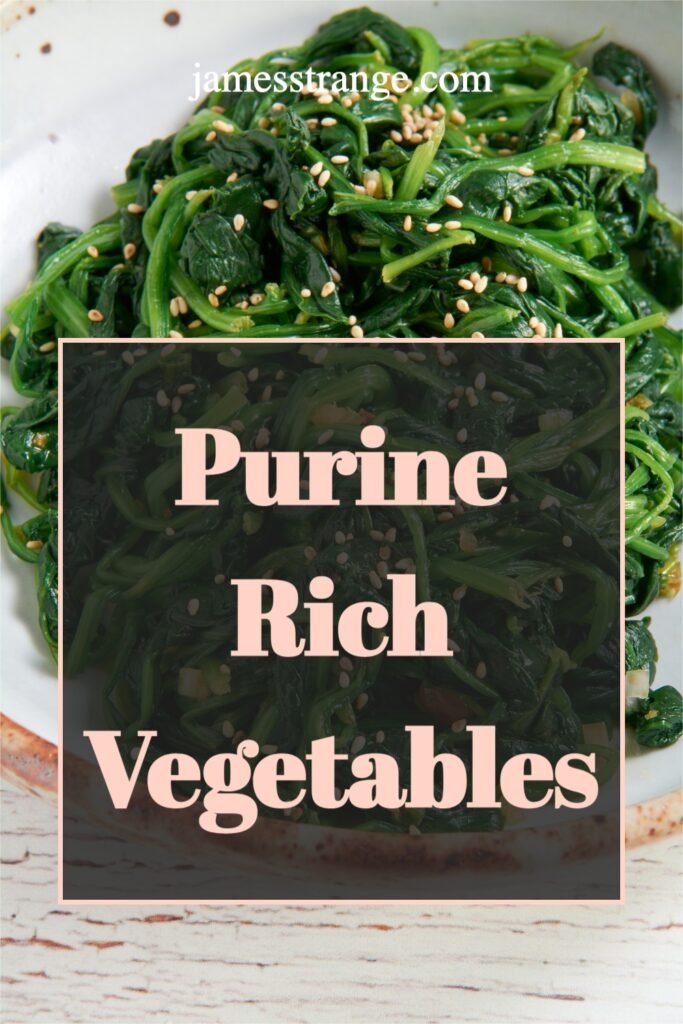Are you one of the millions of people who, like me, suffer from gout? If yes, you certainly know the pain caused by consuming purine-rich foods. Did you know that gout is a form of arthritis and is characterized by sudden and sharp bouts of pain, redness, swelling, and tenderness in your joints? We can define gout as a medical condition in which were not able to filter excess uric acid. This causes a buildup of uric acid in our bodies. It is worth noting that this can result in extreme and sudden pain in your joints due to uric acid, crystal deposits.

I am sure that you have heard that gravies (bone/meat stock), beer (yeast), and organ meats are high-purine foods? However, note that certain vegetables also have moderate amounts of purine.
According to research, increasing your water intake and losing weight will help reduce gout symptoms.
However, you should know that there is another great way gout patients may reduce their symptoms: avoiding or minimizing certain types of drinks and foods that can trigger flares.
Symptoms of gout can be intermittent but note that flare-ups of this condition may come on unexpectedly and suddenly. You may know that pain can last for hours or even several weeks post-flare-up?
For more information on foods that I avoid or severely limit, check out my post Ten foods to avoid with gout.
What are Purine-rich Foods?
Note that purines are organic compounds present in every cell of your body. Did you know that they are also present in many animal-based and plant-based foods? It is worth noting that the top purine-rich foods are usually meat products, particularly internal organs, like kidneys and liver, and even fish. On the other hand, plant-based diets are often low in purines.
You should know that there are two main types of purines. These are endogenous purines and exogenous purines. Did you know that your body directly makes endogenous purines? In contrast, your body absorbs exogenous purines through the various foods you eat.
During digestion, purines in food are quickly broken down into uric acid. Note that these compounds also play a role in RNA and DNA synthesis. However, excess of purines is likely to lead to gout and many other health issues.
Did you know that one third (33%) of the uric acid that your body produces is because of the breakdown of purines that you get from foods and drink? Keep in mind that if you consume many purine-rich foods, such as red meat, your body will have a higher uric acid level. Excess uric acid in your body can result in many disorders, such as kidney stones and gout.
Vegetables also contain purines, but they also have other vitamins and nutrients that we need to stay healthy. We need to consume a variety of foods, including purine-rich vegetables. According to the Mayo Clinic, “Studies have shown that vegetables high in purines, such as asparagus and spinach, don’t increase the risk of gout or recurring gout attacks.”
Only when my uric acid levels are normal will I consume purine-rich vegetables in moderation. To monitor my uric acid levels, I use a UASure Uric Acid Meter. Knowing my uric acid levels helps me to make better diet decisions.
Here are some purine-rich vegetables.
Broccoli: A hundred grams of broccoli has about 81 mg of purines.
Leaks: A hundred grams of leek has about 74 mg of purines.
Brussels sprouts: A hundred grams of Brussels sprouts has about 69 mg of purines.
Mushrooms: A hundred grams of mushrooms has about 58 mg of purines.
Spinach: A hundred grams of spinach has about 57 mg of purines.

Why Purine-rich Foods are Bad for Gout Sufferers
You know that gout occurs when there is a buildup of uric acid in your blood. Usually, uric acid dissolves in the blood, and you excrete it via urine. However, it is worth noting that when your body is making too much uric acid, it will build up, leading to the formation of urate crystals. Did you know that these small needle-shaped uric acid crystals are deposited in your joints? Also, they can trigger unexpected and sudden swelling.
If you searched for this article and have read this far then you or someone close to you has probably felt this pain.
Usually, your body successfully digests as well as expels most purines without any difficulty. However, note that this is not always the case. This is why if your digestive system cannot properly process purines, you can experience excess uric acid amounts in your body.
If you seek treatment right away, note that gout is nothing to be too concerned about. However, if you don’t seek treatment, it may lead to advanced gout and even tophi. Note that over time, this may lead to permanent joint damage.
People who have gout cannot efficiently remove excess uric acid. As a result, a high-purine diet can let uric acid crystals accumulate in your body, causing a gout attack. The good news is that research reveals restricting purine-rich foods, and taking suitable medication will help prevent gout attacks.
If you have gout, eating a diet rich in purines will likely make your symptoms considerably worse as it increases the level of purines in your body. This can be problematic when your system is already struggling to break these compounds down. And this is why sticking to low-purine foods can be very important for effectively managing gout flare-ups.
Diet is essential for controlling gout, but I cannot stress enough that working with a Rheumatologist is vital to keeping your gout under control. Look for a Rheumatologist in your area that has experience working with gout patients. A Rheumatologist can prescribe maintenance and drugs to help during an attack.
List of Purine-rich Foods
You should drastically reduce or avoid the following purine-rich foods:
- Anchovies
- Herring
- Sardines
- Cod
- Haddock
- Trout
- Mussels
- Bacon
- Scallops
- Veal
- Turkey
- Venison
- Liver
- Red meat
- Organ meats
- Meat-based sauces and gravies
- Yeast supplements
Some of the drinks that may trigger gout are as follows:
- Most alcoholic beverages, such as whiskey, beer, gin, or vodka
- Sugary drinks, like juices, sodas, and energy drinks
- Coffee, tea, and other beverages high in caffeine. Although some studies reveal that caffeine may protect against gout pain, other studies show that sudden increases in caffeine intake may trigger a gout attack.
What to Eat If You Have Gout?
- Anti-inflammatory vegetables and fruits, such as fresh berries and cherries, onions, sweet potatoes, garlic, and whole grains
- Foods high in vitamin C
- Adequate water
- Low-fat milk
- Low-fat yogurt
- Coffee (moderate intake)
- Chicken breast (please consult with a Rheumatologist)
- Salmon (please consult with a Rheumatologist)
- Seeds and nuts
Weight Loss
You should know that many studies have indicated that reaching a healthy weight and maintaining it is a great way to lower the frequency of your gout flare-ups. Weight loss and exercise also lower uric acid levels, helping prevent gout flares. Did you know that subjects who lost about 16 pounds reduced their uric acid levels by three points in a small trial?
However, it is worth noting that it is best to avoid crash diets if you want to lose weight. By shedding weight too quickly, you might end up triggering an attack. This is why like any dietary plan, note that a slow and steady approach is much better for your overall health and well-being and something you will be better able to maintain, especially in the long run.
Final Thoughts
If you have gout, note that you can deal with it and prevent it with a proper diet. All you have to do is determine which foods work best for your specific biochemistry and which do not. There is no doubt that a low-purine diet will help reduce your uric acid levels. The diet can also help individuals who are obese or overweight to lose weight. Note that these changes can prevent flare-ups of gout and kidney stones, keeping you healthy.
However, it would be best if you always spoke with a Rheumatologist or dietician before embarking on a new diet, particularly one intended to address a specific health issue. It would be best to take proper care of your diet and eat plenty of organic and fresh vegetables and fruits. This will help you prevent many diseases, including gout.

